
CHINESE
COMMUNIST
ESPIONAGE

CHINESE
COMMUNIST
ESPIONAGE
An Intelligence Primer

PETER MATTIS AND MATTHEW BRAZIL
Naval Institute Press
Annapolis, Maryland
Naval Institute Press
291 Wood Road
Annapolis, MD 21402
2019 by Peter Mattis and Matthew Brazil
All rights reserved. No part of this book may be reproduced or utilized in any form or by any means, electronic or mechanical, including photocopying and recording, or by any information storage and retrieval system, without permission in writing from the publisher.
Library of Congress Cataloging-in-Publication Data
Names: Mattis, Peter L., author. | Brazil, Matthew J., author.
Title: Chinese Communist Espionage : An Intelligence Primer / Peter L. Mattis and Matthew J. Brazil.
Description: Annapolis, Maryland : Naval Institute Press, [2019] | Includes bibliographical references and index.
Identifiers: LCCN 2019020106 (print) | LCCN 2019981671 (ebook) | ISBN 9781682473030 (hardcover) | ISBN 9781682473047 (ebook)
Subjects: LCSH: China. Guo jia an quan buHistory. | China. Gong an buHistory. | Zhongguo gong chan dangHistory. | Espionage, ChineseHistory. | Espionage, CommunistHistory. | EspionageChinaHistory. | Intelligence serviceChinaHistory.
Classification: LCC UB271.C6 M38 2019 (print) | LCC UB271.C6 (ebook) | DDC 327.1251dc23
LC record available at https://lccn.loc.gov/2019020106
LC ebook record available at https://lccn.loc.gov/2019981671
 Print editions meet the requirements of ANSI/NISO z39.481992 (Permanence of Paper). Printed in the United States of America.
Print editions meet the requirements of ANSI/NISO z39.481992 (Permanence of Paper). Printed in the United States of America.
27 26 25 24 23 22 21 20 199 8 7 6 5 4 3 2 1
First printing
Contents
Preface
T his book is the result of collaboration between Peter Mattis, an analyst of the modern Peoples Republic of China (PRC) intelligence community, and Matthew Brazil, a historian of early Chinese Communist Party (CCP) intelligence operations and a former corporate investigator. We hope that this material will be of interest to those seeking a clearer understanding of how China conducts espionage. Even though everyone spies, the methods by which the PRC pursues secret intelligence are too often shrouded in unnecessary mystery. This can lead to miscalculation, misunderstanding, and prejudice by governments protecting national security information and businesses protecting trade secrets. Perhaps more importantly, it distorts and harms bilateral relations between China and its important diplomatic and trading partners, particularly the United States and Japan.
The mystery is partly of our own making. This field is neglected by China watchers, sometimes to avoid somehow upsetting commerce or other institutional relations with China, but also because of the thin veil of the Chinese language. Many recently published works on Chinese espionage in English failed to pierce that veil or even to give it a fair go, using few if any Chinese-language sources. It is as if someone in Beijing wrote a book about the U.S. intelligence community without examining Englishlanguage sources.
As the reader can see in our bibliography, we have consulted numerous Chinese publications, books, and other materials. However, we believe that we have only scratched the surface. Few are more aware than the handful of authors who have delved into this arena of the vast and unexplored range However, we hope that we have begun a more critical analysis of this darker corner of Chinese communist history and governance than is evident in the increasingly mythologized accounts that have come out of Beijing in recent times.
In writing a reference guide, we do not intend to provide the definitive answers but rather to introduce the history of intelligence within the CCP and the modern party-state. Systematically sketching the key figures, organizations, and espionage cases invites readers to draw their own conclusions about PRC intelligence services, their activities, and their methods. By contrast, much of the existing analysis and commentary about Chinese intelligence is anecdotal or drawn from the observations of security professionals who cannot speak freely. The experience of these professionals often is limited to a fraction of the PRCs clandestine activity. Focusing only on economic espionage, the activities of intelligence services, united front work, or theft in cyberspace would result in misleading conclusions about what the PRC does in each of the other areasreminiscent of the parable of the elephant and the blind men. By contrast, we make a broader attempt to explain what todays PRC intelligence services do and the roots of their work in CCP history.
The value of a reference guide lies in making a lot of data easily accessible. Between the limitations of English-language works and the narrow lens through which most security professionals look at PRC intelligence, there is a need to shine a light across the breadth and historical depth of this activity. The needs of the present often require journalists and analysts to emphasize the new rather than the continuous. We hope this reference guide enables those who must meet the needs of today to see both continuity and novelty with greater clarity.
We are particularly grateful to David Chambers, James Mulvenon, Bob Suettinger, Frederick Teiwes, and two anonymous reviewers for their comments on large portions of the manuscript. We are also grateful for the advice of Brge Bakken, Michael Dutton, Roger Faligot, Joo Guedes, Jianye He, Philip J. Ivanhoe, Wendell Minnick, Dahlia Lanhua Peterson, Steve Tsang, Bruce Williams, Peter Wood, Miles Maochun Yu, and the staffs of the C. V. Starr East Asian Library, University of California, Berkeley, and of the University Services Center at the Chinese University of Hong Kong.
While those mentioned above and others who prefer anonymity provided generous help, we take responsibility for errors or omissions. The views expressed in this book are the authors alone and not those of the U.S. Government, CECC, or anyone in them.
CHINESE
COMMUNIST
ESPIONAGE
Introduction
F or the employees of a certain Chinese government ministry in Beijing, the coldest day of 2011 was not in winter. It was on the morning that all personnel were ordered to view the execution of one of their comrades, who had been exposed as a spy for the Central Intelligence Agency (CIA), and his pregnant wife. The two were shot in the ministrys interior courtyard, the proceedings shown on closed-circuit television.
The mans sentence was only one of a dozen or more lethal warnings to the Chinese bureaucracy between late 2010 and December 2012. The state and the ruling Chinese Communist Party (CCP) would not tolerate disloyalty by those entrusted with its secrets. There would be no mercy, even for the unborn child of a traitor. The forces of state security had destroyed CIA networks in China, and woe to anyone who tried to revive them.
Why does the CCP react in such a vociferous and lethal manner to a crime that would draw only a prison sentence elsewhere? One answer lies in how close the party has come to being destroyed by betrayal, whether from allies or spies within.
For Americans and others in the West, foreign espionage and related intelligence failures have been perilous but have not really been threats to national existence. The Japanese attack in Hawaii on December 7, 1941, shook the U.S. government and especially its intelligence establishment, which vowed never to be so surprised againthough September 11, 2001, might qualify as a reminder. In both cases the United States may have stumbled, but these intelligence setbacks did not prevent the nation from recovering and fighting back hard.
Next page
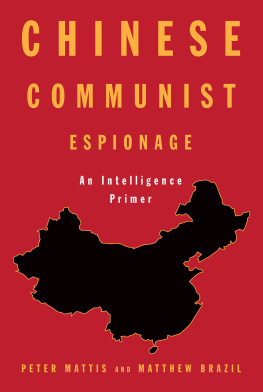


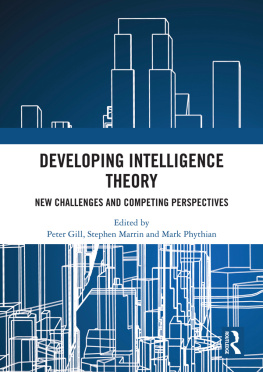
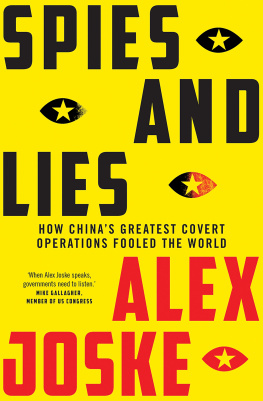
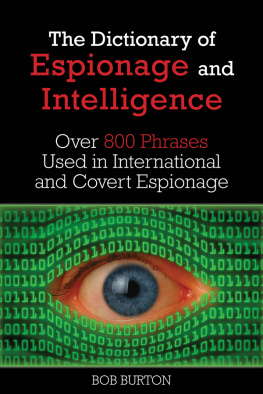
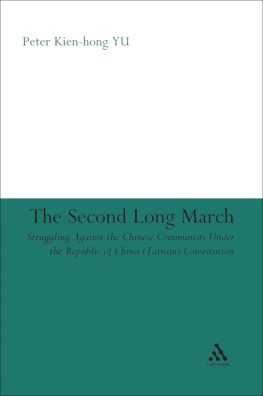

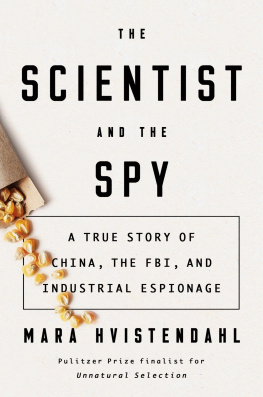






 Print editions meet the requirements of ANSI/NISO z39.481992 (Permanence of Paper). Printed in the United States of America.
Print editions meet the requirements of ANSI/NISO z39.481992 (Permanence of Paper). Printed in the United States of America.